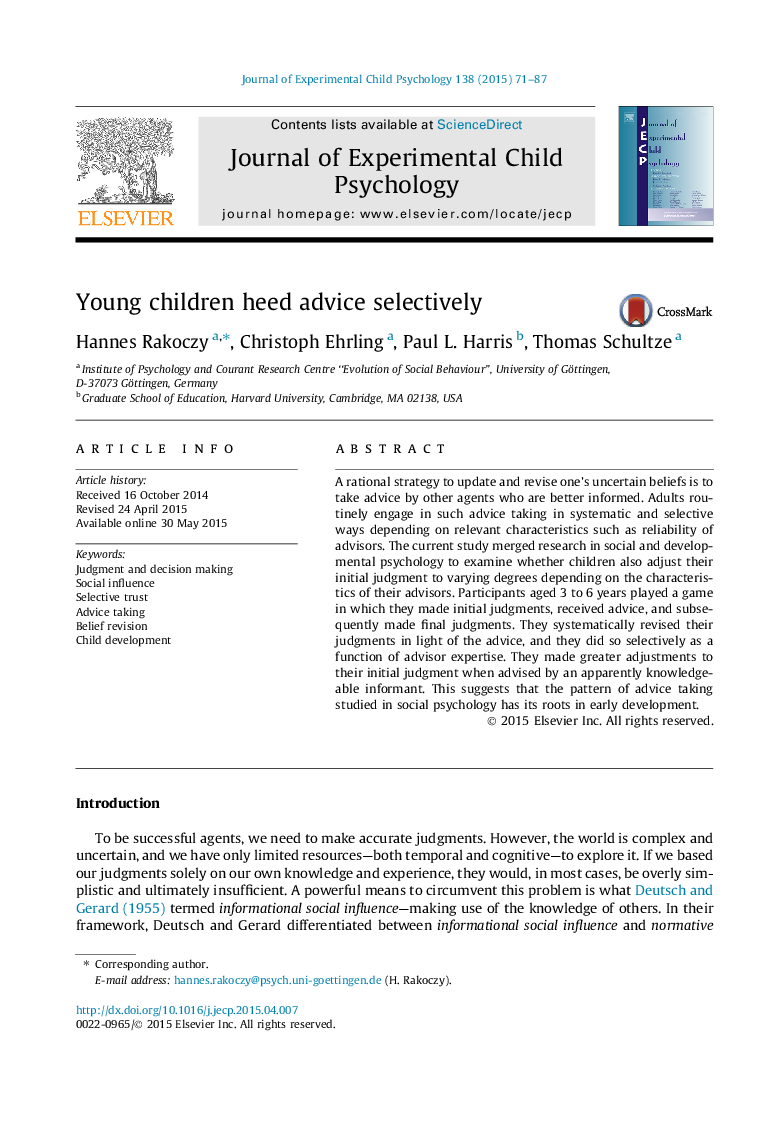| Article ID | Journal | Published Year | Pages | File Type |
|---|---|---|---|---|
| 917939 | Journal of Experimental Child Psychology | 2015 | 17 Pages |
•Children systematically revise existing opinions in light of another person’s advice.•The more competent an advisor is, the more children follow the advice.•Children prefer more competent advisor as a future source of information.•Children tended to overweight advice (while in other studies, adults usually underweight it).
A rational strategy to update and revise one’s uncertain beliefs is to take advice by other agents who are better informed. Adults routinely engage in such advice taking in systematic and selective ways depending on relevant characteristics such as reliability of advisors. The current study merged research in social and developmental psychology to examine whether children also adjust their initial judgment to varying degrees depending on the characteristics of their advisors. Participants aged 3 to 6 years played a game in which they made initial judgments, received advice, and subsequently made final judgments. They systematically revised their judgments in light of the advice, and they did so selectively as a function of advisor expertise. They made greater adjustments to their initial judgment when advised by an apparently knowledgeable informant. This suggests that the pattern of advice taking studied in social psychology has its roots in early development.
